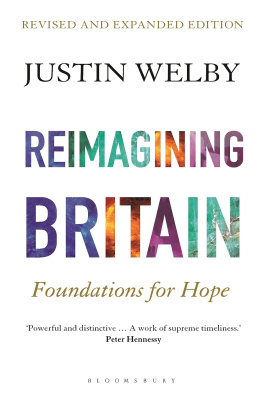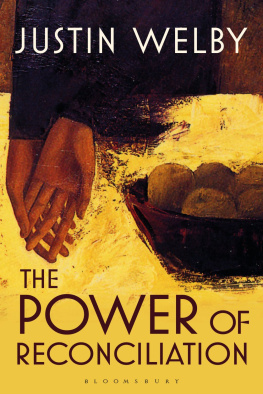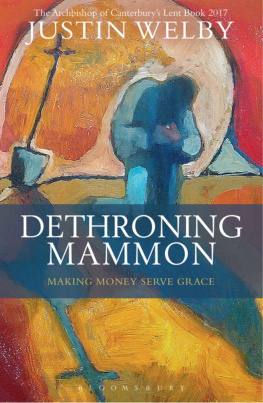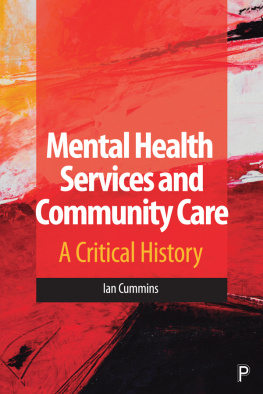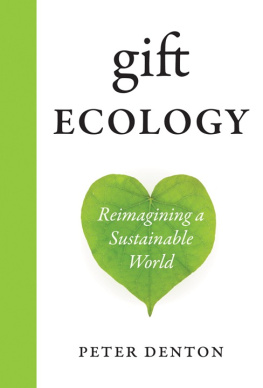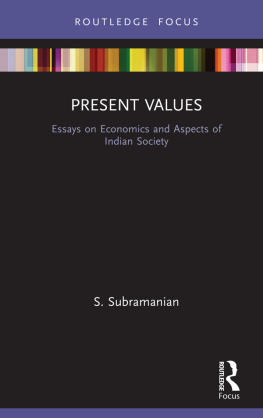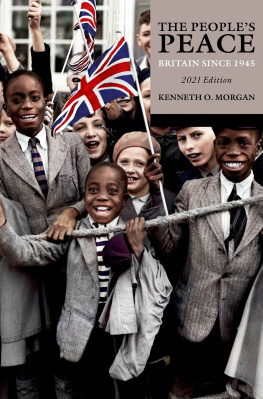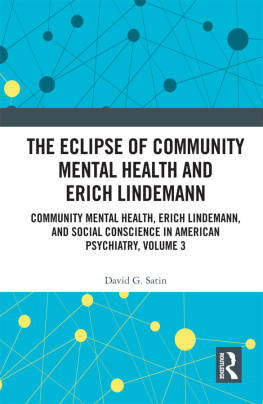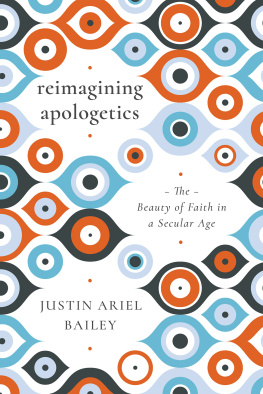
To our wonderful children, our children-in-law, and their children who have been such a support, such a reason for joy, and such a foundation of hope.

Contents
The number of people who have helped me write this book is enormous. Special mention must be made of Catherine Whittle, who did the lions share of the research, and added numerous comments and challenges which have been invaluable. Jack Palmer-White has also read and thought and helped hugely. Emma Shelton in my office has collated comments and kept on top of things.
Caroline Chartres, my editor at Bloomsbury, has nagged tactfully, encouraged warmly, and as ever amused and prompted with witty and insightful comments. Her colleague Jamie Birkett has gone well beyond the extra mile to steer the book through production. I am especially grateful to Robin and colleagues at Bloomsbury Continuum who suggested the second edition, to my entire disbelief, and in my office to Abbie Martin and Keziah Stephenson, without whom it could not have been done. My wonderful colleagues in my office, led by Helen Harris, make all this work possible.
Robert Willis, Dean of Canterbury, and Charlie Arbuthnot very kindly read the text and commented. Mary Eaton read and encouraged; I am so very grateful.
I am deeply appreciative of my close working colleagues, David Porter, Bishop Nigel Stock, Bishop Tim Thornton and my former chaplains Jo Wells (now Bishop of Dorking) and Isabelle Hamley, Chris Russell, Sarah Snyder, Mark Poulson, Will Adam, Ailsa Anderson, Bishop Anthony Poggo and Bishop Precious Omuku. They have very often contributed indirectly and accidentally in conversations which are always challenging and powerful. To them must be added Archbishop Josiah Fearon.
Surprisingly to some (but not me), both the Church of England House of Bishops and the General Synod have been places of learning and education for me. I am especially grateful to a number of bishops who lead in areas mentioned in the book. They include Richard Chartres, James Langstaff, David Urquhart, Paul Butler, Tim Thornton, James Newcome, Stephen Conway and many others. I would like to note especially Nick Holtam, who kindly assembled a wonderful group to help on the climate-change chapter, including in addition to some of those already mentioned Geoffrey Lean, George Marshall, Loretta Minghella, Professor Chris Rapley, Dr Meg Warner and David Shreeve.
Conversations with Sam Wells, Paula Vennells, Tim Cross, former colleagues in the oil industry such as Viv Gibney and Sir Graham Hearne and many others have shaped my thinking over the years. Sam Wells also made invaluable comments on the text at a late stage.
The Association Internationale pour lEnseignement Social Chrtien (AIESC), currently led by Professor Paul Dembinski, has been a group of mainly but not exclusively Roman Catholic Christians with whom I have met annually for almost 20 years, and from whom I have learned of the riches of the Catholic Churchs social teaching.
Finally, because although the list could last forever it has to stop somewhere, I would like to thank David Ford, and all those who have been part of the theological reflection group that has met in Canterbury over the last four years.
There could be literally thousands more, but only one person is responsible for messing up their good thinking, and that is me. This book does not cover everything it could, and events move so fast that it feels as though it is dating as quickly as ice cream melts in the sun. It is not a manifesto, nor an exhaustive list of areas to cover, but it does suggest some patterns and tools for thinking which I offer for what they are worth.
In all the ups and downs of writing, as well as my wonderful, generous and critical colleagues there is above all the humanizing and perspective-forming love of the family, most especially my wife, Caroline, who finds a thousand answers to the moments of difficulty. To all mentioned here, and especially to her, thank you.
When I finished my first book ( Dethroning Mammon , Bloomsbury, 2016), I realized a couple of things. First, I write chiefly for myself. Second, actually letting go of a book so that others can read it is terrifying. In this, I suspect, I am like many others. Since I wrote the first edition of Reimagining Britain change has continued apace. I was somewhat surprised that Bloomsbury suggested a second edition, but as I thought about it I realized it would at least enable me to think further on the dramatic events of the last three years. It may or may not help others as well!
These dramas have all tested our values. They include two General Elections. The first led to an extended period of a hung Parliament that tested our constitution and renewed demands for another Scottish vote on independence as well as bringing Northern Ireland and its future back centre-stage in UK politics. The second decisively settled the question of whether we would leave the European Union and returned a government with a strong majority. Then came the COVID-19 pandemic, which made the need to reimagine our future yet more pressing. At the same time there have been huge changes in international relations and the decisive leaving of the European Union at the beginning of 2020.
These enormous events and changes taking place provoked me into thinking further about the implications especially in the context of a lot of talk about British values. As I will discuss later, this phrase is used to apply to three values: democracy, the rule of law, and respect for others. Such values are obviously essential (who would want to argue for tyranny, anarchy and mutual contempt?), but the core of this book is to argue that, while they are necessary, they are not sufficient. They are not wide enough, not strong enough and not flexible enough to bear the weight of the necessity of reimagining Britain. British values as often used is thus a phrase that always seems to strike the wrong note. I am not even convinced that there is such a thing as exclusively British values. I rather suspect, and argue here, that there are values that come out of our common European history and our Christian heritage, which have been tweaked and adapted in each country and culture. Wherever they exist, in every part of the UK Scotland, Northern Ireland, Wales and England they are seen in practice.
The number of books written on the subject of our future as a nation (or several nations), and the intensity of public discussion, seem to indicate that this really is one of those rare moments when we have both the risk and the opportunity of rethinking what we should do and be as a country. Of course, it is very far from being within our control, but collectively we have an influence on our future and, with sufficient courage, and determined leadership from among our politicians and others, it is something we can and must do.
Brexit has happened, and just making the best of it is not good enough; there must be a process of reimagining that enables the UK to flourish in every possible way. However, as is said at least once below, the need to reimagine how we live in hope may have been accelerated by the pandemic and the decision to leave the European Union, but it existed anyway.
The views expressed here are my own, not an official position of the Church of England or the Anglican Communion. It is part of being Anglican that we accept a wide range of diverse opinions, and that no one person or group is entitled to decide definitively what the Church thinks. I would certainly not dare to imagine changing that happy accident of our history.

